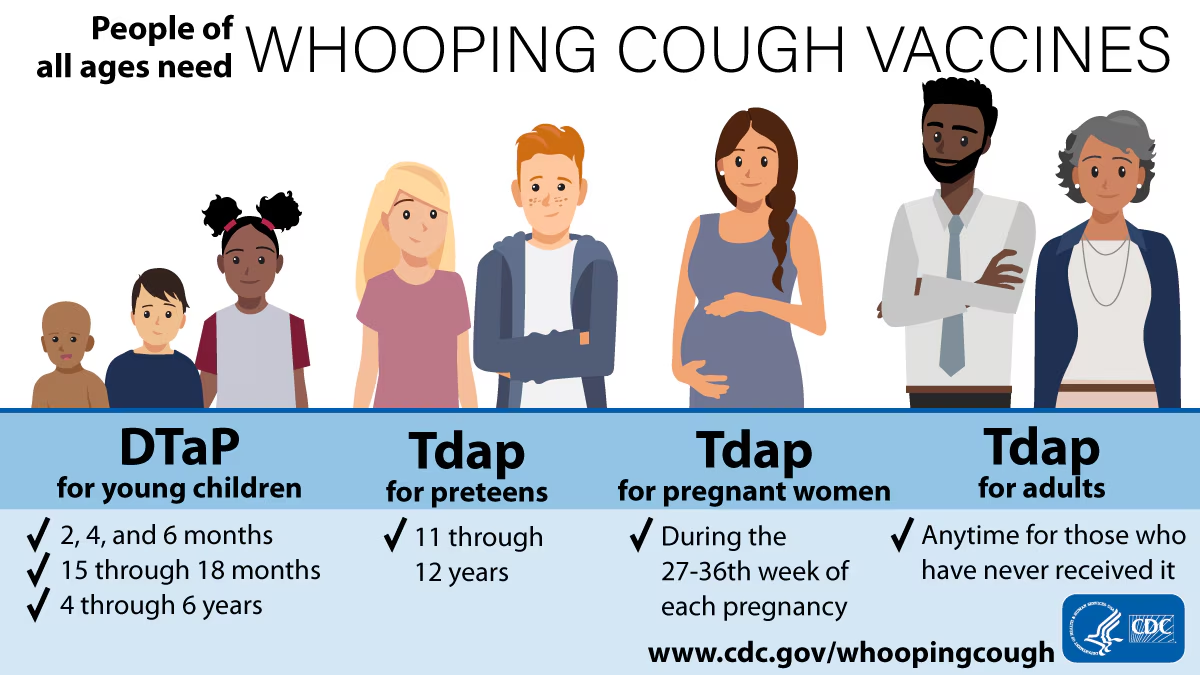
Pertussis, commonly known as whooping cough, has seen an alarming increase in cases this year within our county. This respiratory illness is caused by the bacterium Bordetella pertussis, and while it may start with symptoms similar to a common cold, it can quickly progress to severe respiratory issues, particularly for vulnerable populations.
Symptoms and Severity
Pertussis symptoms can vary greatly depending on factors such as age and vaccination status. In mild cases, it often presents as cold-like symptoms, including a runny nose, low-grade fever, and a mild cough. However, as the illness progresses, patients may experience:
- Uncontrollable coughing fits
- A high-pitched “whoop” when breathing in after a coughing spell
- Vomiting following coughing fits
Babies, especially those under one year of age, are at the highest risk for severe complications. Infants may not display the typical coughing symptoms but instead may suffer from apnea, a condition characterized by dangerous pauses in breathing. In some cases, this can lead to cyanosis, where the baby’s skin turns blue due to a lack of oxygen.
How Pertussis Spreads
Pertussis spreads easily through the air, primarily in settings where people are in close and prolonged contact. When an infected individual coughs or sneezes, droplets containing the bacteria are released into the air, which can be inhaled by others nearby. Alarmingly, individuals can remain infectious for up to three weeks after their cough begins. Moreover, those experiencing only mild symptoms may unknowingly transmit the infection.
Appropriate antibiotic treatment can help reduce the length of time a person is contagious, but early diagnosis is crucial to prevent the spread.
Vaccination: Your Best Defense
The most effective way to protect against pertussis is through vaccination. It is important to ensure that children are up to date with their vaccinations, particularly the DTaP vaccine, which protects against diphtheria, tetanus, and pertussis.
For adults, booster shots (Tdap) are recommended every 10 years. Pregnant women should also receive a booster between the 27th and 36th weeks of each pregnancy to help protect their newborns from infection.
The community benefits significantly from high vaccination rates. Booster shots are particularly important for adults who will be around individuals at higher risk, such as infants under one year old. By keeping up with vaccinations, we can collectively reduce the spread of this highly contagious disease.
For more information or to schedule a vaccination appointment, check with your healthcare provider or visit one of our community health clinics.
Conclusion
With rising pertussis infections, it is crucial to stay informed and take preventive measures. Vaccination remains the best line of defense against whooping cough, and by ensuring that everyone in our community is protected, we can help reduce the risk of severe illness, particularly in our most vulnerable populations.

